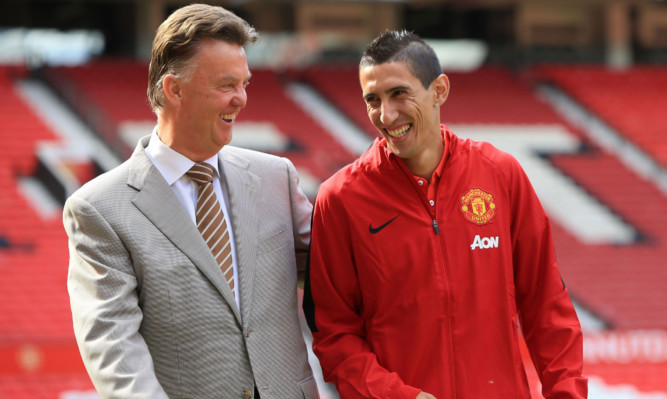
What does it say about Louis van Gaal when Manchester United throw decades of caution to the wind and suddenly spend £150-million in a single transfer window?
Maybe the Dutchman has impressed his new employers so much that they decided he was the man to entrust with the unprecedented levels of expenditure?
Far more logical, though, is that the Glazer family and their executives have been so underwhelmed by Van Gaal’s impact on the players he inherited that they concluded his coaching ability wasn’t going to be nearly enough to guarantee a top-four finish.
So they helped him out with Britain’s most expensive player, the world’s costliest teenager, the most sought-after striker on the planet and three other top-ranked internationals.
Now, when Van Gaal turns around United’s fortunes, he will be hard pushed to claim his “philosophy” a word he uses at every possible opportunity is responsible.
If United have regained a Champions League place at the end of the campaign it will be down to one thing they’ve purchased premium players.
Like Van Gaal, the club also had a philosophy. They might have been the richest in the world but they never bought success.
They were proud to stand apart from Chelsea and Manchester City and say that they were different. They developed their own players. When they did buy, they bought promise and nurtured it themselves.
There was the occasional ready-made star like Robin van Persie, but it was the exception that proved the rule. That’s all gone now, abandoned because United can’t afford a second season outside the elite.
The rewards for being in the Champions League double next season, and the commercial forces that drive United need the income. So success had to be fast-tracked.
Forget the fancy tactics. Forget the three months of adjustment Van Gaal warned about. Just start winning matches.
With Rademal Falcao and Angel di Maria on board along with Luke Shaw, Ander Herrera, Daley Blind and Marcos Rojo it should be harder for United to finish outside the top four than inside it.
Even though there doesn’t seem to have been much thought to addressing specific weaknesses the lack of a dominant centre-back and a midfield playmaker a manager who has that level of quality gifted to him shouldn’t fail.
So when Van Gaal is congratulating himself and saying: “I told you so,” his words won’t mean very much.

Enjoy the convenience of having The Sunday Post delivered as a digital ePaper straight to your smartphone, tablet or computer.
Subscribe for only £5.49 a month and enjoy all the benefits of the printed paper as a digital replica.
Subscribe